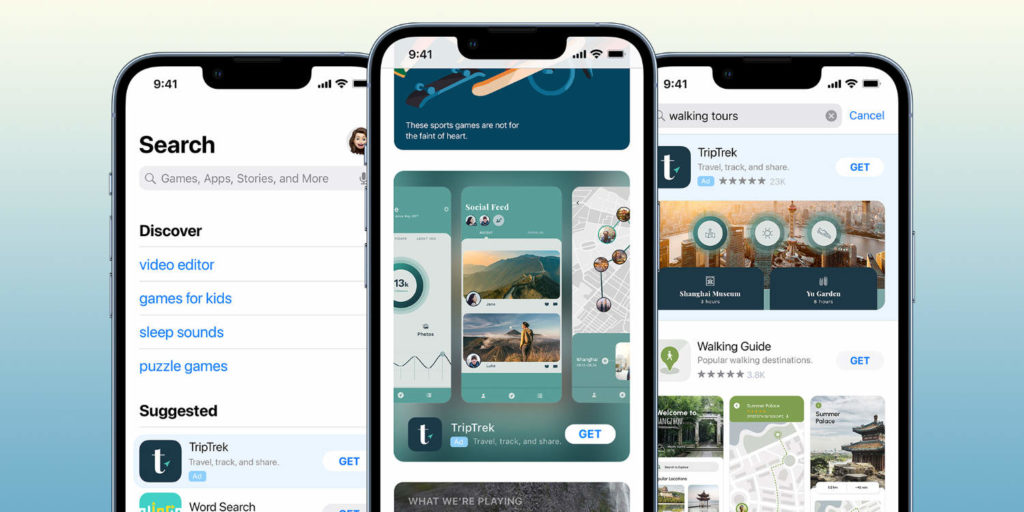Apple should cut back on iPhone ads, before people cut back on buying iPhones
Is there such a thing as a good advertisement? And what constitutes a bad one, to the detriment of a piece of hardware and the manufacturer’s brand? Apple now grapples with these questions in its quest for endless growth.
For many years, the deal with Apple was simple: you paid premium prices for a premium experience. Elsewhere, that option is less clear-cut. Amazon Kindle has long offered buyers a small discount if they buy a model where the screensaver shows sponsored ads. This feels squalid, but is a minor compromise. Ads don’t appear when you’re reading, and they can be permanently removed for a one-off payment.
A cheaper Kindle can be yours – if you’ll agree to it showing ads
In search results, things have long been worse. Use Google or Amazon, to pick two examples, and the first results you see are often paid matches to your term – ads. This represents a poor user experience, because it wastes your time; also, such ads are sometimes not clearly defined, conflating an organic search result with one where placement was paid for.
Made of money
Injecting such advertising feels cheap. It’s a sign of a company that prizes profits over your own enjoyment. And although this is perhaps excusable for devices sold close to cost, or services that are free to use but expensive to maintain, it’s distasteful when a company makes huge profits and has a value rivaling a small country. Hence: Apple.
It’s important to remember Apple is a corporation. Making profits is part of its DNA, and it’s sometimes a necessary goal. Without profitability, Apple’s resurgence under Steve Jobs would never have happened. But the company then largely appeared to consider profits a means to an end – a way to ensure it could continue to innovate. Today, there’s an impression Apple needs to fuel growth at all costs. And the excuse often provided to support this stance – that corporations are legally required to maximize shareholder value – is a myth.
A Featured vs Up Next battle continues to play out
With the iPhone’s meteoric rise starting to plateau and the iPad and Mac wavering between good and bad quarters, Apple’s growth increasingly rests on services and advertising. And much of what we’ve seen in recent years is not good. Settings has long featured upgrade ‘nags’ to the likes of Apple One. The company has flirted with prioritizing new content in Apple TV+ over what you’re watching. And then there’s the App Store.
Store wars
Apple’s app and game storefront has seen the most egregious misuse of ads. In 2016, search results were effectively broken. The first item, while flagged as an ad, often displays a competitor to your search term. On an iPhone, this dominates the screen. At the time of writing, a search for ‘Snapchat’ in the UK App Store returns Amazon as the first result; for ‘Photoshop’, the store shows AirBrush – Best Photo Editor. This is not a positive user experience. It’s not even good for developers, who feel compelled to buy search terms to ‘protect’ their apps. The only body benefitting is Apple – and only ostensibly, given that these ads erode trust in its brand.
Things took a turn for the worse in October 2022. Today view, Apple’s editorial content in the App Store, suddenly got ad slots that are barely differentiated from standard stories. Worst of all, ads appeared on individual app pages, as the first entry in ‘You Might Also Like’. Developers were outraged. Not only could they not influence what ad appeared, but initial ads were woefully inappropriate. Pages for apps designed to treat gambling addiction showed ads for actual gambling apps. At best, the results are a nonsense – during testing, we got an ad on PCalc’s page for Animal Revolt Battle Simulator. How is that remotely relevant for people considering buying a scientific calculator?
Apple’s App Store ads rollout was a disaster. (Image credit: Jon.)
Within days, Apple told MacRumors it had “paused ads related to gambling and a few other categories,” but other ads remain. The gambling ads shouldn’t have appeared in the first place, but arguably neither should any of the ads in the App Store – nor elsewhere on your iPhone and iPad.
Just say no
Apple needs to go back to first principles and learn to say no. It can’t be Apple and be a bit of a Google or an Amazon. Once differentiation is ground down, what is the point of Apple? When it becomes the same as everyone else, turning you into the product, why should customers not consider cheaper alternatives that are broadly equivalent in terms of build quality and specs?
We asked at the start of this piece if there is such a thing as a good advertisement. The answer is yes. But it has to be appropriate, non-intrusive, and relevant. It has to matter to you, not annoy you. Bad ads detract from the user experience – and there are now far too many of those threaded throughout iPhone and iPad. Time will tell whether Apple will recognize this fault, or whether it cares more about growth than it does about you.
